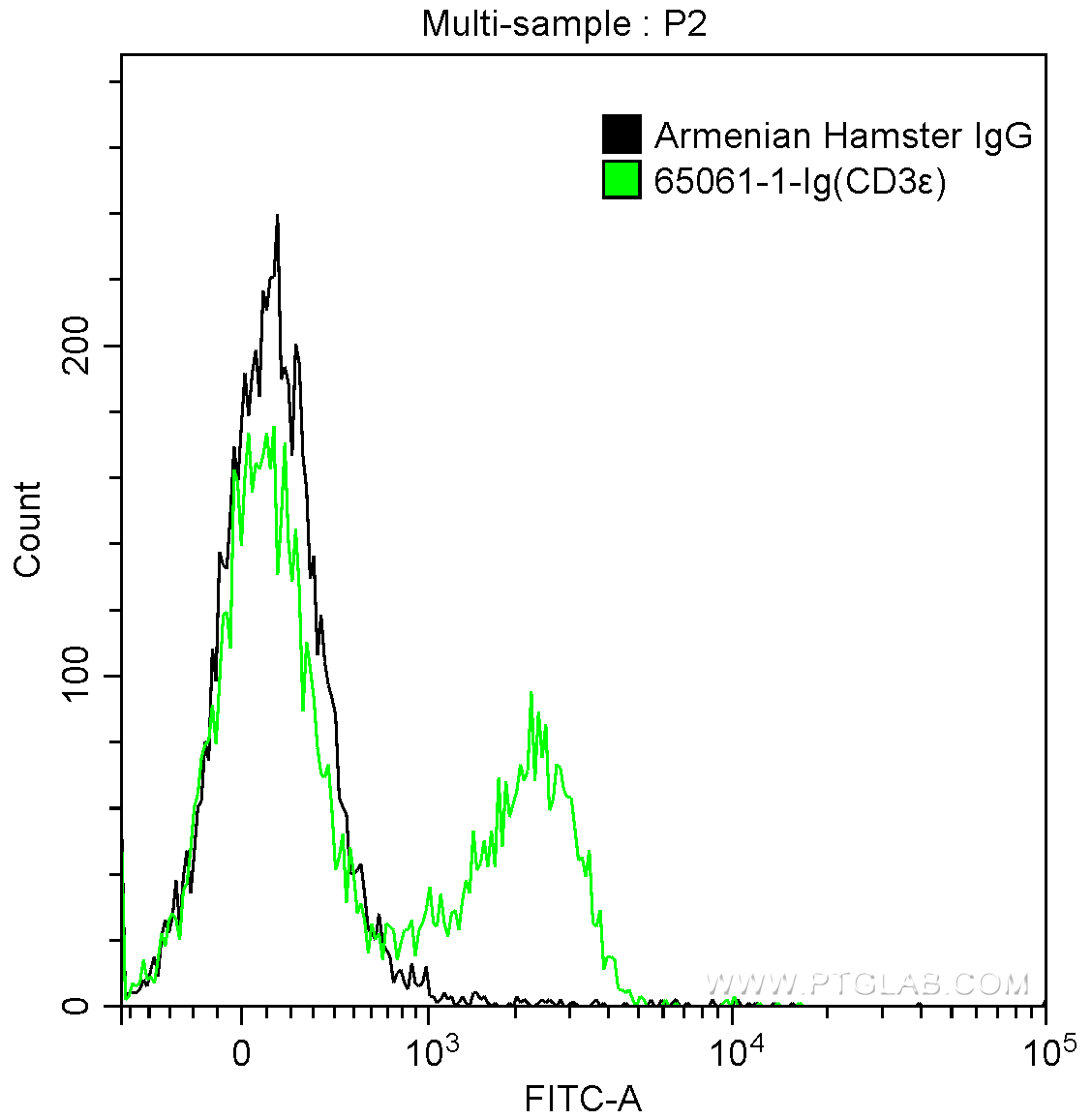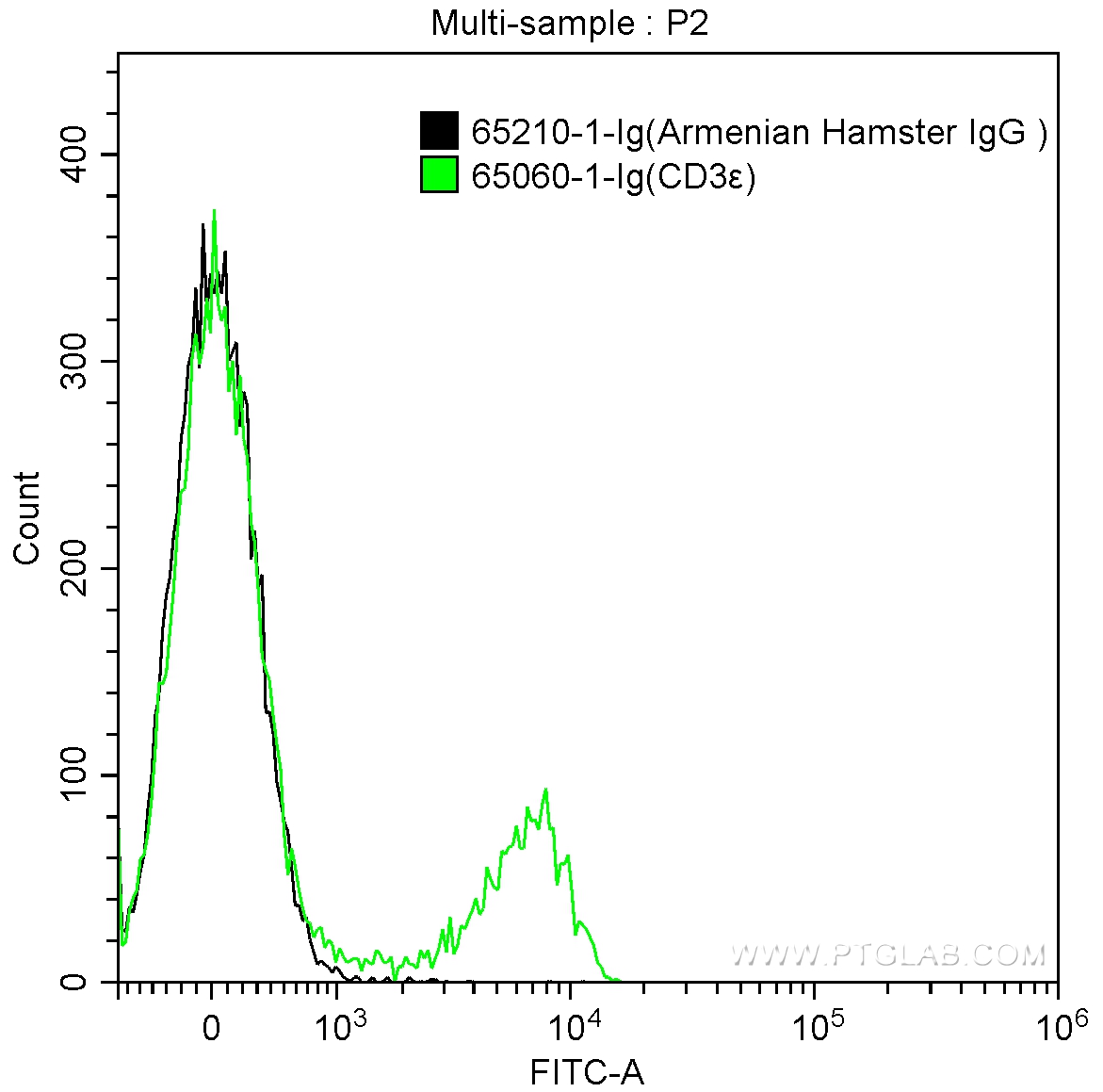Anti-Mouse CD3ε (500-A2)
CD3ε Monoclonal Antibody for FC
Host / Isotype
Hamster / IgG
Reactivity
Mouse
Applications
FC
Conjugate
Unconjugated
CloneNo.
500-A2
验证数据展示
经过测试的应用
| Positive FC detected in | mouse splenocytes |
Planning an IF experiment? We recommend our CoraLite®594 and CoraLite® Plus 647 conjugated versions of this antibody.
推荐稀释比
| Application | Dilution |
|---|---|
| This reagent has been tested for flow cytometric analysis. It is recommended that this reagent should be titrated in each testing system to obtain optimal results. | |
| Sample-dependent, Check data in validation data gallery. | |
产品信息
65061-1-Ig targets CD3ε in FC applications and shows reactivity with Mouse samples.
| Tested Applications | FC Application Description |
| Tested Reactivity | Mouse |
| Immunogen | Immune complexes isolated from C6VL-BS thymoma cells 种属同源性预测 |
| Host / Isotype | Hamster / IgG |
| Class | Monoclonal |
| Type | Antibody |
| Full Name | CD3 antigen, epsilon polypeptide |
| Synonyms | AI504783, CD3, CD3e, CD3epsilon, CD3ε, T3e |
| GenBank Accession Number | BC098236 |
| Gene Symbol | CD3ε |
| Gene ID (NCBI) | 12501 |
| RRID | AB_2918369 |
| Conjugate | Unconjugated |
| Form | Liquid |
| Purification Method | Affinity purification |
| UNIPROT ID | P22646 |
| Storage Buffer | Borate buffered saline, pH 8.2. |
| Storage Conditions | Store at 2-8°C. Stable for one year after shipment. |
背景介绍
CD3 is a multimeric protein associated with the T-cell receptor (TCR) to form a complex involved in antigen recognition and signal transduction (PMID: 15885124). CD3 is composed of CD3γ, δ, ε, and ζ chains (PMID: 1826255). It is expressed by thymocytes in a developmentally regulated manner, T cells, and some NK cells (PMID: 3289580). The TCR recognizes antigens bound to major histocompatibility complex (MHC) molecules. TCR-mediated peptide-MHC recognition is transmitted to the CD3 complex, leading to the intracellular signal transduction (PMID: 11985657).
实验方案
| Product Specific Protocols | |
|---|---|
| FC protocol for CD3ε antibody 65061-1-Ig | Download protocol |
| Standard Protocols | |
|---|---|
| Click here to view our Standard Protocols |

